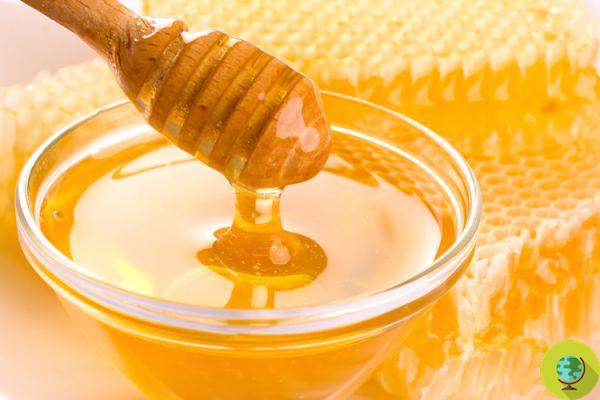
According to a study, bacteria and some super bacteria are unable to resist the medicinal properties of honey.
Don't store avocado like this: it's dangerousWonderful honey. Also super antibiotic-resistant bacteria they can be defeated with the precious nectar. This is the confirmation that comes from some Australian researchers that bacteria and some super bacteria are unable to resist the medicinal properties of honey.
A study by the University of Technology of Sydney, led by the microbiologist Nural Cokcetin, in fact, with some tests conducted on various types of honey has identified the protective factor of the substance capable of blocking drug resistance.
Starting from the thesis that there are still many dangerous microorganisms that have not yet managed to develop resistance against the medicinal properties of honey, a substance with a thousand characteristics and benefits, the scholars have analyzed different varieties of honey with antibiotics and bacteria.
What emerged is that in the presence of the substance and in conditions in which the so-called "antibiotic resistance" would have developed rapidly, this, on the other hand, did not occur.
"Honey has been used therapeutically by many cultures for millennia and has proved useful as a treatment for wound and skin infections, largely due to its antimicrobial activity," said the study authors.
In particular, it is the honey produced by Leptospermum scoparium (better known as manuka) which has abroad spectrum antimicrobial activity against a wide range of bacterial and yeast pathogens and is equally effective against multi-drug resistant bacteria.
"Australia has more than 80 species of Leptospermum and limited research to date has found at least some honey products with a high non-peroxide antibacterial (NPA) activity similar to New Zealand's Manuka," the researchers explain. “And the activity of manuka honey is largely due to the presence of methylglyoxal, non-enzymatic product from dihydroxyacetone present in manuka nectar “.
The objective of the study was then to chemically quantify the compounds contributing to the antibacterial activity in a collection of Australian Leptospermum honey, to evaluate the relationship between methylglyoxal and NPA in these samples and to determine if the NPA changes during the storage of honey. Scientists examined 80 honey samples from flowering manuka trees in New South Wales and Queensland and found that methylglyoxal is present in Australian varieties.
"The study provides evidence of what we have long assumed that methylglyoxal is at high levels in Australian manuka honeys," said study lead author Dr Nural Cokcetin, of the University of Technology Sydney. "We have also shown that the activity of Australian manuka honeys has remained unchanged over the course of seven years since harvest, which has huge implications for extending the lifespan of medicinal honey products."
About manuka honey may also interest you:
- Manuka honey: properties, uses and where to find it
- Manuka honey: natural antibacterial also for children
- What lies behind manuka honey?
In short, what makes manuka honey particularly special is the exceptionally high level of antibacterial activity stable that comes from a compound naturally present in the nectar of manuka flowers. Plus, honey doesn't just kill bacteria on contact, according to this study, the bacteria don't become resistant to honey.
Germana Carillo


























